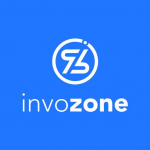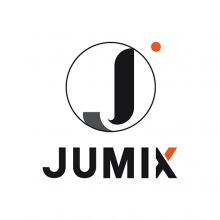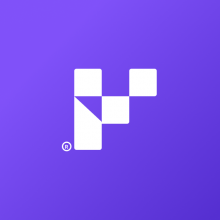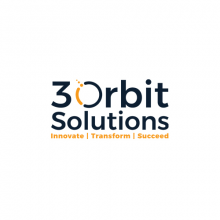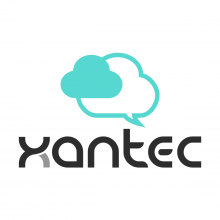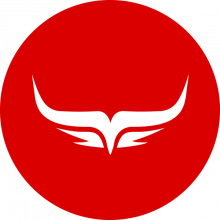
There are 27 Companies in Malaysia
that provide Angular Development Services!
Malaysia is strategically situated with easy accessibility to other countries and has a robust infrastructure, economic stability. ICT has been identified as the key growth sector in the country that grows at an Annual Average Growth Rate (AAGR) 9.0 percent over a period of 7 years. The ICT sector is one of the most productive in Malaysia, and besides boosting digital transformation, it is contributing about 13.8% to the total GDP.
Discover Top IT Companies in Malaysia specialized in Angular and other related services. Find the best IT service providers for your projects.
Angular (formerly AngularJS) is a popular open-source web application framework maintained by Google and a community of developers. It's used for building dynamic, single-page web applications (SPAs) and web-based applications in general. Angular provides a structured and organized way to create complex web applications by extending HTML with additional features and enabling the development of interactive, responsive, and maintainable front-end web interfaces.
Handpicked companies • No obligation to hire • 100% risk-free
Featured Companies in Malaysia
This month, the following Angular Development companies managed to provide an outstanding service and support. It's worth taking a look.
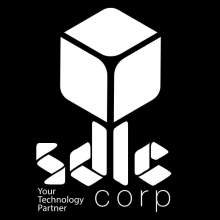
Kuala Lumpur, Malaysia Head office in: United States
SDLC Corp is a global IT solutions provider offering custom software, apps, blockchain, AI, Odoo, Salesforce, and game development services.
Creating tailored solutions for your unique needs, our company specializes in delivering customized solutions that exceed expectations.
Explore Top Angular Development Companies in Malaysia

TechGropse Pvt. Ltd. Verified Company
Kuala Lumpur, Malaysia Head office in: United States
Techgropse is a leading Mobile App and Web Development Company, dedicated to turning innovative ideas into remarkable digital solutions. 500+ Clients

Kuala Lumpur, Malaysia Head office in: United States
Access the Top 1% Tech Talent | 1500+ In-House Developers | Trusted by Fortune 500 Companies

Fire Bee Techno Services Verified Company
Kuala Lumpur, Malaysia Head office in: India
Fire Bee Techno Services is an ISO-Certified Blockchain and AI Development Company In india and across the world with 13+ years of experience.
Empowering Growth Through Technology.
GREEN-i blends strategy, creativity and technology to build impactful web, app, marketing and data experiences.
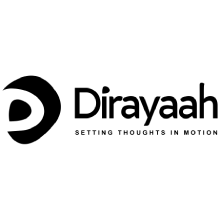
Dirayaah Smart Technologies Verified Company
Petaling Jaya, Malaysia Head office in: Saudi Arabia
Dirayaah Smart Technologies™ Paves The Way For Organizations To Expand Their Abilities To Stand Out Through Developing Advanced Software Solutions.
A global software company driving digital transformation worldwide, with expertise in design, mobile, web development and more.
Services:

Wavespace - UI/UX Design Agency Verified Company
Kuala Lumpur, Malaysia Head office in: Bangladesh
At Wavespace, we specialize in taking ideas from concept to company.
Services:
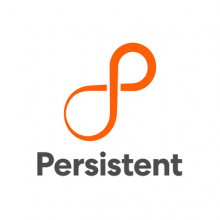
Persistent Systems Verified Company
Selangor Darul Ehsan, Malaysia Head office in: India
See Beyond, Rise Above

Selangor Darul Ehsan, Malaysia Head office in: United States
Linkitsoft is a custom software development company dedicated to helping businesses scale through reliable, affordable, and innovative digital solutio
Phi Software Sdn Bhd — your Partner Hub for Innovation, delivering tailored software solutions that drive growth and digital transformation.
An award winning agency that help businesses to grow and expand their brand through an outstanding looking website and an automated sales system.
Services:
Evolve with Innovation.
Red Ant Technology offers secure, scalable software development services with a focus on web, mobile, and loyalty apps across the Asia-Pacific region.
Services:
XANTEC is an MD Status certified software and web design company in Malaysia since year 2006. HQ based in Johor Bahru, and sales office in Singapore.

Petaling Jaya, Malaysia Head office in: India
Rootsquare Technologies (RST) is a most rapidly growing, innovative IT Services & Consulting company founded in 2012, in India, providing consulti...
Having rich experience of 4+ years in mobile, web and software solution development, Team4solution is a leading IT company globally. Our team is not o...
At Microtech Group, we specialize in delivering innovative custom software and design solutions tailored for the public service, digital economy, SMEs
Digital Marketing Agency / SEO / Social Media Marketing / Web Development
Services:
We transformed how people experience the world’s brands and businesses digitally through experience strategy, design and development
Services:
- 1
- 2
Filter Angular Development Companies in Malaysia by Cities
Find the right tech company near you or from a specific city. Some of the best companies might be located in smaller cities.
Find more Angular Development companies around the world
TechBehemoths is the world's most advanced and user-friendly platform to match IT Companies with real clients without hustle.
The IT Industry in Malaysia: General Portrait
Malaysia is strategically situated with easy accessibility to other countries and has a robust infrastructure and economic stability. ICT has been identified as the key growth sector in the country that grows at an Annual Average Growth Rate (AAGR) of 9.0% over a period of 7 years. The ICT sector is one of the most productive in Malaysia, and besides boosting digital transformation, it is contributing about 13.8% to the total GDP.
Malaysia has always been a popular destination for U.S. ICT companies for their global market expansion. Some of the significant U.S. companies that are well-established in Malaysia are IBM, HP, Intel, Google, Amazon, and many others. Malaysia has a holistic digital ecosystem and a complete ICT support system for U.S. businesses.
At the same time, according to Markus Monnikendam from Lizard Global, a leading IT company from Malaysia, we can say that following a stronger-than-expected rebound of 7.8 percent last year, the Central Bank of Malaysia projects economic growth of between 4% and 5% in 2023, which will help Malaysia avoid a recession. The recovery is widespread across industries and businesses. Since the reopening of international borders, recovery has become more established. Businesses of all sizes and in all industries saw an increase in sales as compared to the same period before the pandemic. But when it comes to sales growth, big businesses continue to dominate.
Why You Should Work With Malaysian IT Companies
Malaysia is a great outsourcing opportunity for foreign companies, but it hosts numerous tech giants, which have educated the local digital community to implement those needed changes in business culture, project management, and prepared the skilled workforce in the IT industry.
For this reason, companies from Malaysia are more visible and considered a regional force in the IT industry, making good competition for Indonesia, the Philippines, and even India.
In addition to this, Markus Monnikendam, the Commercial Director Global of Lizard Global, mentions that in the upcoming years, Malaysia's growth will be centered on technology. Malaysia's much-awaited adoption of 5G technology is anticipated to have a substantial positive impact on the labor market because it will enhance the development of the web and generate an estimated 39,000 value-added jobs.
Why Outsource Software Development to Malaysia?
Malaysia is an attractive outsourcing destination known for offshoring services in software development and BPO. It has a rapidly growing tech industry with thriving tech hubs, boasting a vibrant startup ecosystem, innovation centers, and accelerators. Various factors make Malaysia more appealing as an outsourcing location, including supportive government policies, the presence of tech cities, and high-quality education. Additionally, talented tech experts, high English proficiency, cost-effectiveness, and ease of doing business in Malaysia raise Malaysia’s position as a perfect destination for software development outsourcing.
What to Pay Attention to When Working With Malaysian IT Companies
Since it is expected that Malaysia will reach a digitalization level of 21% by 2025, local IT companies are struggling to invest in the training and education of young developers and designers that would bring potential growth to the Malaysian IT sector. However, following the current trends, Malaysian IT companies have a high chance of growing and providing higher-quality digital services.
Also, the layoffs in the IT industry. Markus Monnikendam from Lizard Global states that recent layoffs at IT firms show that even the biggest businesses can make misjudgments when attempting to strike a balance between staff planning and profitability.
How Reliable Are Malaysian IT Companies
On a regional background known for outsourcing destinations for international IT companies, Malaysian web and software agencies have a continuously improving position in terms of reliability. Both local demands for digital products and international opportunities gave Malaysian IT companies enough chances to reveal their potential and increase the trust level of clients.
How Does the Malaysian IT Industry Relate to the Neighboring Countries?
The tech evolution in the past 5 years has managed to create a competitive environment in the region, where each step towards evolution is considered an advantage. The Malaysian IT industry relies heavily on tech giants' investments that would to manage, keep, and educate young professionals. Nonetheless, the recent tax-friendly policies implemented by the Malaysian government managed to develop the IT industry and infrastructure, but it is still behind Indonesia and India.
How is the Business Climate for Opening a New IT Company as a Local Entrepreneur in Malaysia?
According to Ezra Tan from VeecoTech Web & Ecommerce Sdn Bhd, a local IT company from Malaysia, the demand is higher than the supply. However, IT talent is minimal, and companies are competing aggressively to recruit talent, which is one of the main struggles for new IT companies that have to compete with bigger market players. This means that when opening an IT company in Malaysia, the entrepreneur should first look for skilled professionals due to high competitiveness, and only later be concerned about incoming projects.
Moreover, Markus Monnikendam states that Malaysia, a developing nation, has been attempting to diversify its economy to reduce its reliance on natural resources and move towards a more knowledge-based economy. Kuala Lumpur (KL) is ranked as the third best startup ecosystem in Southeast Asia, behind Singapore and Jakarta, in Startup Genome's 2020 Global Startup Ecosystem Report. With startups in numerous industries, Malaysia has a broad startup environment. However, e-commerce, fintech, and healthcare are the most promising industries.
How do Governmental Institutions Encourage the Development of the IT Sector?
Erza Tan also states that there are multiple grants that are being rolled out to encourage businesses to be more innovative and to assist small businesses to digitalize their businesses with special tax rebates as well. Some of these grants can be found at MDEC, or get more information about them on HSBC.
Also, according to the Commercial Director Global of Lizard Global, Markus Monnikendam, the Malaysian government created the MyDIGITAL program as part of the Malaysia Economy Digital Economy Blueprint to promote this broad-based ambition, embracing a national digital transformation. The government has goals to make Malaysia a high-income, digitally-driven nation and a regional leader in the digital economy by 2030, and this program is a part of those plans. Malaysia aims to strengthen its position as a regional data hub through the government's Cloud First plan under the MyDIGITAL framework, embracing investment in data centers.
Industry 4.0 represents a shift in the global economy of Malaysia, driven by technologies like AI, IoT, robotics, and big data analytics. It helps improve efficiency and competitiveness and is adopted by different countries, including Germany, the US, and China. Malaysia is leveraging Industry 4.0 to optimize its manufacturing industry, attract foreign investments, and foster tech innovations.
Kuala Lumpur & Penang - the Best Cities for IT Businesses, Locals Say
When asked about the best two places for IT businesses in Malaysia, Erza mentioned that Kuala Lumpur would be the best city for IT companies, as it has the best balance of having a bigger pool of talent and a bigger opportunity to do business with a wide range of local and MNC companies there. The next location would be Penang. A growing hub and one of the biggest contributors to the country's revenue.
But the list goes on, as Markus Monnikendam from Lizard Global places in the lists two other locations at the top of doing IT business in Malaysia: Cyberjaya and Iskandar Puteri.
- Cyberjaya - With 144,000 innovators and creators, 400 MSC-status organizations, including multinational corporations (MNCs), and more than 40 government offices and centers, the city is currently regarded as Malaysia's technological hub. It essentially acts as the foundation for successful technology companies and businesses.
- Iskandar Puteri - It is now a center for cutting-edge digital innovations. Iskandar NEXT, one of its initiatives, aims to create and deploy Fourth Industrial Revolution (4IR) technological ecosystems. The Blockchain Village at Medini (BVAM) and the Drone and Robotics Zone (DRZ) Iskandar, Malaysia's first drone and robotics hub, were both made possible as a result.
Is the Malaysian Talent Poll IT-driven?
The short answer - yes. The long answer, however, has a more detailed explanation. According to Lizard Global, when local talents move employers in 2023, local talent anticipates earning an increase of 20% to 30% in pay. Less than 20% salary increases will probably make it difficult for businesses to recruit top employees. Other financial perks, such as fuel or transportation allowances, food subsidies, and flexible yearly leave, are particularly effective for attracting talent while improving the entire employee experience. However, if there is one perk that we are aware of that employees value most, it is flexible scheduling.
This article was created together with prominent figures and professionals coming from reputable Malaysian IT Companies. Special credits: Erza Tan and Markus Monnikendam.
What is Angular and what are its benefits for your projects?
Angular (formerly AngularJS) is a popular open-source web application framework maintained by Google and a community of developers. It's used for building dynamic, single-page web applications (SPAs) and web-based applications in general. Angular provides a structured and organized way to create complex web applications by extending HTML with additional features and enabling the development of interactive, responsive, and maintainable front-end web interfaces. Here are some key aspects and concepts of Angular:
-
Component-Based Architecture
-
Templates
-
Directives
-
Dependency Injection
-
Services
-
Routing
-
Observable and RxJS
-
Modules
-
Testing
-
Cross-Platform
Angular's structured approach, strong tooling, and vibrant ecosystem of libraries and extensions make it a powerful framework for building modern web applications. It is particularly well-suited for large and complex projects where maintainability and scalability are crucial.
Companies may choose Angular over other front-end frameworks for their projects for a variety of reasons, depending on their specific needs and priorities.
-
Google Backing: Angular is developed and maintained by Google. This association often gives companies confidence in its long-term support, stability, and continuous improvement. Google's involvement is seen as a sign of reliability and commitment to the framework.
-
Mature and Established: Angular has been around for a while and has a strong track record of being used successfully in large-scale enterprise projects. It has a well-defined architecture and best practices, which can be beneficial for maintaining and scaling applications over time.
-
TypeScript Support: Angular is built with TypeScript, a statically-typed superset of JavaScript. TypeScript provides better tooling, code maintainability, and catches errors at compile time, which can reduce bugs and enhance code quality, making it attractive to companies that prioritize robust code.
-
Full-Featured Framework: Angular provides a comprehensive set of tools, libraries, and features out of the box, including routing, form handling, HTTP client, and more. This can save development time and effort compared to integrating multiple third-party libraries in other frameworks.
-
Two-Way Data Binding: Angular offers powerful two-way data binding, which allows for automatic synchronization between the data model and the view. This feature can make it easier to develop interactive and responsive user interfaces.
-
Large and Active Community: Angular has a large and active community of developers and a wealth of resources, including documentation, tutorials, and third-party libraries. This can be beneficial for finding solutions to common problems and getting support when needed.
-
Enterprise-Ready: Angular provides features like dependency injection, modularity through modules, and a strong emphasis on testability. These characteristics are well-suited for building robust and maintainable enterprise-level applications.
-
Strict Coding Standards: Angular enforces a set of coding standards and best practices, which can lead to more consistent and readable code. This can be important for companies with multiple developers working on the same codebase.
-
Cross-Platform Development: Angular can be used for building both web and mobile applications. Companies looking to develop applications for multiple platforms may choose Angular for its ability to share code between web and mobile apps using technologies like NativeScript or Ionic.
-
Integration with Backend Technologies: Angular can easily integrate with various backend technologies and APIs. This makes it suitable for projects where the front end needs to communicate with different types of server-side applications.
-
Security Features: Angular provides built-in security mechanisms to help prevent common web vulnerabilities like Cross-Site Scripting (XSS) and Cross-Site Request Forgery (CSRF). This can be crucial for projects with high security requirements.
-
Ecosystem and Tooling: Angular has a rich ecosystem of tools, extensions, and IDE support, including Angular CLI for project setup and management. This can streamline development workflows and improve productivity.
Ultimately, the choice of Angular or any other framework depends on the specific project requirements, the development team's expertise, and the company's long-term goals. Companies evaluate various factors to determine which framework aligns best with their needs, resources, and priorities.

